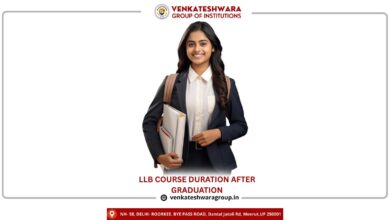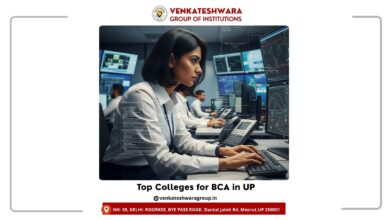B.Ed after 12th, Fees, Duration, Eligibility

The best way to do a B.Ed after 12th is to enrol in an integrated BABEd/BScBed course after passing class 12th.
One cannot do a B.Ed directly after 12th because one should be a graduate to pursue the B.Ed course.
The BABEd/BScBEd course allows students to pursue an education degree right after passing class 12th along with a graduation degree of a BA/BSc.
Most states conduct an entrance test before short-listing candidates for the B.Ed course, while many offer direct admission into the integrated BABEd/BScBEd course.
The BABEd/BSCBed programs were created because of the growing demand for teaching qualifications right after 12th grade.
These dual integrated courses of BABEd/BScBEd provide dual degrees of BA/BSc along with a B.Ed and complete in 4 years, thus saving 1 year for the candidate.
While the traditional B.Ed takes 5 years, 3 years for graduation and 2 years for B.Ed.
The BABEd/BSCBed course is approved by the National Council for Teacher Education (NCTE) the governing body that regulates teacher education in the country.
Those who wish to become teachers can aptly pursue the integrated B.Ed also known as BABEd or BScBed, and realize their teaching career.
Integrated B.Ed after 12th
These integrated B.Ed course teachers are Trained Graduate Teachers (TGTs) because they are graduates with a teaching qualification. They can teach classes (6-10).
When AI disrupting various sectors, people are exploring AI -proof careers, and teaching is one of them.
Because teachers bring in a human touch through storytelling, and empathise with students having varied learning curves. But teachers will need to reform their teaching so that they can connect with students well.
An excellent teacher engages the class by presenting topics in a simple and easy-to-understand manner. Teaching is a skill that one masters through constant practice.
One can become an excellent teacher by becoming a teacher by choice and not by chance.
Through constant practice and engaging TLMs, teachers can make the topics easy for the learners.
B ed after 12th science
As stated earlier, one cannot pursue B.Ed directly after 12th Science because one should be a graduate in order to pursue a B.Ed.
But one can pursue BScBEd, which is an integrated teaching course offering dual degrees of BSc and B.Ed together.
BScBEd allows 12th Science passed students to gain a teaching qualification along with a BSc degree.
With the aim of nurturing motivated teachers, the integrated BaBEd/BScBed course came into being because it tempts budding teachers to enrol in a teaching course right after passing class 12th.
It removes the hassle of applying separately first for a graduate course ; then later for a B.Ed course. Over the years, there has been an enormous rush to pursue B.Ed because some states are recruiting government teachers in large numbers.
This has prompted authorities to promulgate a B.Ed entrance test that shortlists candidates for the course.
Because of the high cut-off, many students, despite putting in splendid efforts, cannot secure admission in a government B.Ed college. While, because of ignorance, there is not much competition for the integrated BScBEd allowing students to pursue integrated B.Ed after 12th Science.
B.Ed after 12th how many years
As mentioned earlier, one cannot pursue B.Ed directly after 12th, while one can pursue the integrated B.Ed also called BAB.Ed or BScB.Ed after passing class 12th. The integrated B.Ed after 12th is of 4 years, comprising 8 semesters.
B.Ed Eligibility
Candidates with at least 50% marks either in the Bachelor’s Degree and/or in the Master’s Degree in Science/Social Sciences/ Humanities, or
Bachelor’s in Engineering or Technology with a specialization in Science & Mathematics with 55% marks. 5% relaxation for SC/ST candidates. + UP JEE B.Ed Counselling.
Integrated B.Ed (BAB.Ed) eligibility
10+2 with 50% marks for GEN/OBC and 45% marks for SC/ST. (All streams)
B.Ed Syllabus of CCS University – Complete Guide for Aspiring Teachers
B.Ed Course Fees
The fees depend on whether the college is public or self-financed.
Public institutions have subsidized fees compared to private ones, which have higher fees. For a detailed overview of the B.Ed course fees, please on the following link.
Why B.Ed after 12th (Integrated B.Ed) is a wonderful option
The teaching profession is one of the noblest professions because a teacher teaches all other professions. Therefore, many youngsters aspire to become teachers.
The traditional path to gaining a teaching qualification requires one to do B.Ed after graduation.
NCTE over the years felt the need to develop a teaching course that allowed students gain a teaching qualification right after passing class 12th.
Hence the BaB.Ed/BscB.Ed integrated course came into being that offers dual qualification of BA/BSc along with a B.Ed.
The GOI wants to nurture learners who aspire to become teachers early on. This creates a pool of enthusiastic educators who are open to new teaching ideas.
Education is transforming with the adoption of AI, coding, robotics and the like. This requires young educators who are open to new ideas that create an engaging classroom.
The child can learn lots of things online, but the teacher provides a human touch by making the topics appealing by relating them to real – life situations.
Teachers should be empathetic because learners have varied learning curves. They should be able to connect with the class so that students pay attention and enjoy the subjects.
Teachers can achieve engagement by involving students in quizzes, poster – making competitions, chart making, etc that help students learn through practice.
A teacher is essential because they make the topic engaging for students.
Therefore, even with AI disrupting many sectors, teachers will always be in demand because they provide a human touch to teaching.






